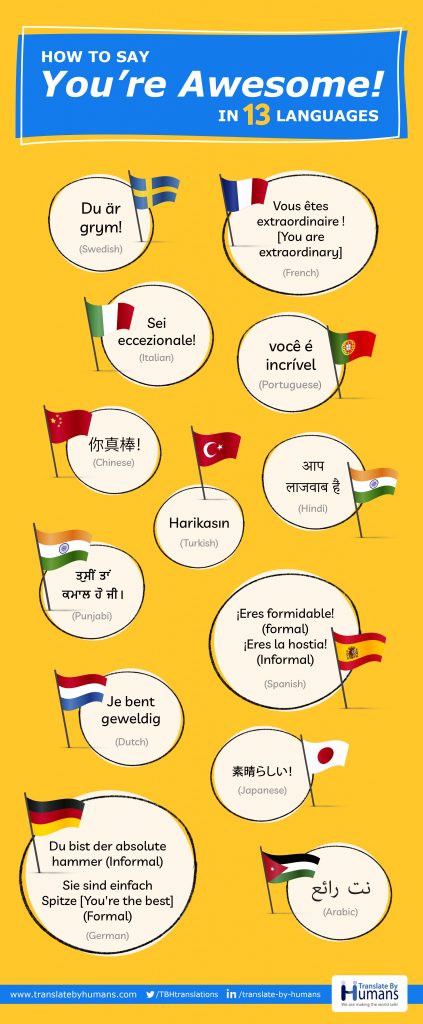“A gentleman goes in search of flattery as keenly as a bee hunts for pollen.”
― Kevin Ansbro
You probably think, “what’s so difficult about giving a compliment?” The American politician who once tried to give a genuine compliment to his French counterpart will have the perfect answer to your question. You see, he complimented one of the members of the French government, saying that he’s doing a great job. The next day, the French media carried stories about what the supposed compliment implied and how the American politician shouldn’t have interfered in their matters.
The challenge of giving and receiving compliments isn’t just linguistic; it’s cultural too. In the situation above, the French understood English well. However, they interpreted the compliment within the scope of their culture. The French give compliments a little differently. When translated into English, French compliments might sound like an exaggeration to some native English speakers.
Don’t worry. We’ve got you covered. On this National Compliment Day, we asked our amazing team of translators to tell us how they compliment or appreciate others in their native languages. What’s more? During our research, some of them also told us about a compliment that is quite unique to their language which we’ve shared in this post.

Saying “you’re awesome” in Swedish
Du är grym!
Ann-Charlotte Storer, who handles Swedish translations for us, says that Swedish doesn’t have compliments specific to certain situations like in English. For instance, if you’re complimenting someone on the courage they showed, you would say “bravo” in English.
“However, one common positive word that doesn’t have an English equivalent is “lagom,” which means “just right” or “not too much, but not too little.” This word is a big part of the Swedish lifestyle, which is all about having a “balanced” approach to life in every way,” says Ann-Charlotte.
Saying “you’re awesome” in French
Vous êtes extraordinaire! (You are extraordinary)
“If I had to suggest a unique compliment in French, it would be – Et vous êtes unique, car rien ne peut vous égaler (you are unique because nothing compares to you),” says our French translator Sylvie Mathis.
It’s quite interesting how the French are not only particular about giving compliments but also the response to the compliments. For instance, if someone compliments you in French saying, “you look so beautiful,” a simple “thank you” won’t suffice. The French might even consider it rude. A befitting response would be, “oh no, you’re just too kind,” – which reflects humility.
Saying “you’re awesome” in Portuguese
você é incrível
When it comes to complimenting the Portuguese, it’s better if you stick to a few niceties. This holds true, especially when you’re talking to or have met the person for the first time. Showering them with compliments in the first meeting or call will make them more feel more suspicious about your intentions.
Saying “you’re awesome” in Italian
Sei eccezionale!
“I don’t think I can express the compliment “Sei davvero speciale” (you are really special) in any other language with the right emotional component,” says our Italian translator Ester Formichella. And Ester is quite correct. Some languages, like Italian, have more expressive words as their cultures appreciate and encourage uninhibited emotional expression.
Saying “you’re awesome” in Chinese
你真棒!
“I don’t think the compliment 你真厉害!(you have a special competence for overcoming challenges) has an equivalent in any other language,” says our Chinese translator Charotte Cui.
It’s a common notion that Asians are generally more reserved about complimenting and showing appreciation as compared to people who’ve grown up in the West. However, the traditions followed within many Chinese cultures reflect that they value reciprocating goodwill, say in the form of the gifts.
Saying “you’re awesome” in Dutch
Je bent geweldig
“The compliment iemand een schouderklopje geven (give someone a small pat on the back) is unique to Dutch,” says our Dutch translator Anjo Sterringa.
The Dutch don’t prefer to use superlatives like ‘best,’ or ‘loveliest.’ If the Dutch want to praise you for something, it’s likely they’ll just manage to say “not bad.” The Dutch value criticism and the ability to criticise. If you are too quick and generous with your compliments, they might think that you don’t know enough to criticise or that you aren’t honest.
Saying “you’re awesome” in Spanish
¡Eres formidable! (formal)
¡Eres la hostia! (informal)
Our Spanish translator Marcel Gallego was very particular about specifying the translations that would be apt for both – a formal and an informal context. “The second one loosely means you are kick-ass. Some might consider the word “hostia” as bad taste,” he warned us.
When communicating in English, people refer to the other person as “you,” and that doesn’t change irrespective of the person’s age, experience, or social status. On the other hand, it’s easier (and essential) to show respect in Spanish with words sie and usted,which are used to communicate formally.
Saying “you’re awesome” in Japanese
素晴らしい!(wonderful)
素晴らしい!(great)
まじかっけー (super cool/gorgeous)
Have you heard of the term “backhanded compliment”? The Japanese used the term homegoroshi, which means “to kill with a compliment.” The Japanese culture uses compliments to express sarcasm. This explains why the Japanese become uncomfortable when they receive compliments. So, it would be quite understandable if a frustrated American says, “why can’t you just accept a compliment?” when his Japanese colleague says, “oh no, I could’ve done a better job.”
Saying “you’re awesome” in German
Du bist der absolute hammer – you’re the absolute hammer (Informal)
Sie sind einfach Spitze – you are simply the best (Formal)
“Mit dem kann man Pferde stehlen° (you can steal horses with him) doesn’t mean that the person is a criminal. It means that the person will stick with you through thick and thin,” says our German translator Renata Von Koerber.
While German has an ample amount of compliments, Germans refrain from using them too often. This is quite different from the American culture that encourages the use of compliments in both formal and informal contexts, especially for breaking the ice. Germans value honesty and hence, criticism. For Germans, the absence of criticism would in itself be a big compliment.
Saying “you’re awesome” in Punjabi and Hindi
ਤੁਸੀਂ ਤਾਂ ਕਮਾਲ ਹੋ ਜੀ। (Punjabi)
आप लाजवाब हैं (Hindi)
“You can also compliment someone with ਤੁਸੀਂ ਤਾਂ ਬਹੁਤ ਹੀ ਵਧੀਆ ਹੋ। (you’re really great) in Punjabi and आप बहुत ही अच्छे हैं। (you’re really nice) in Hindi,” says Bhashna Gupta.
Did you know that, unlike English, Hindi is written the way it’s spoken? Its phonetic script makes Hindi an easy language to learn. Also, some of the words native English speakers frequently use are actually derived from Hindi – guru, avatar, yoga, nirvana, khaki, karma, etc.
Saying “you’re awesome” in Arabic
أنت رائع
نزلت أهلًا وحللت سهلًا” (you’re welcome, we consider you a part of this family) is a really warm compliment,” says Ahmed Said. In Arabic, longer compliments are considered more genuine. So, you’ll come across many Arabic compliments that are lengthy. Arabic also uses many similes and metaphors in compliments.
Saying “you’re awesome” in Turkish
Harikasın
There are many unique compliments and phrases in Turkish that carry deep meaning and sometimes also combine multiple concepts. For instance, if you had to compliment the chef on the food he/she has prepared, you would say “Elinize Sağlık” which means health to your hands.
Conclusion
Did we miss any compliment that is unique to your native language? Do tell us in the comments below.


